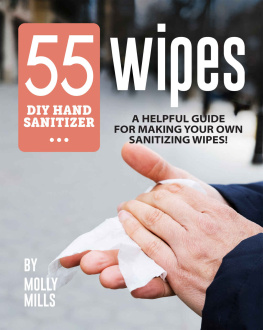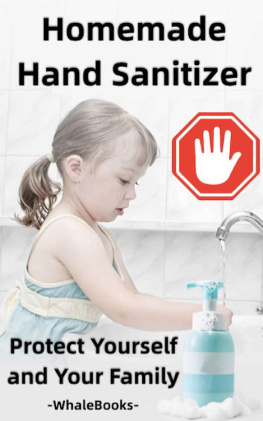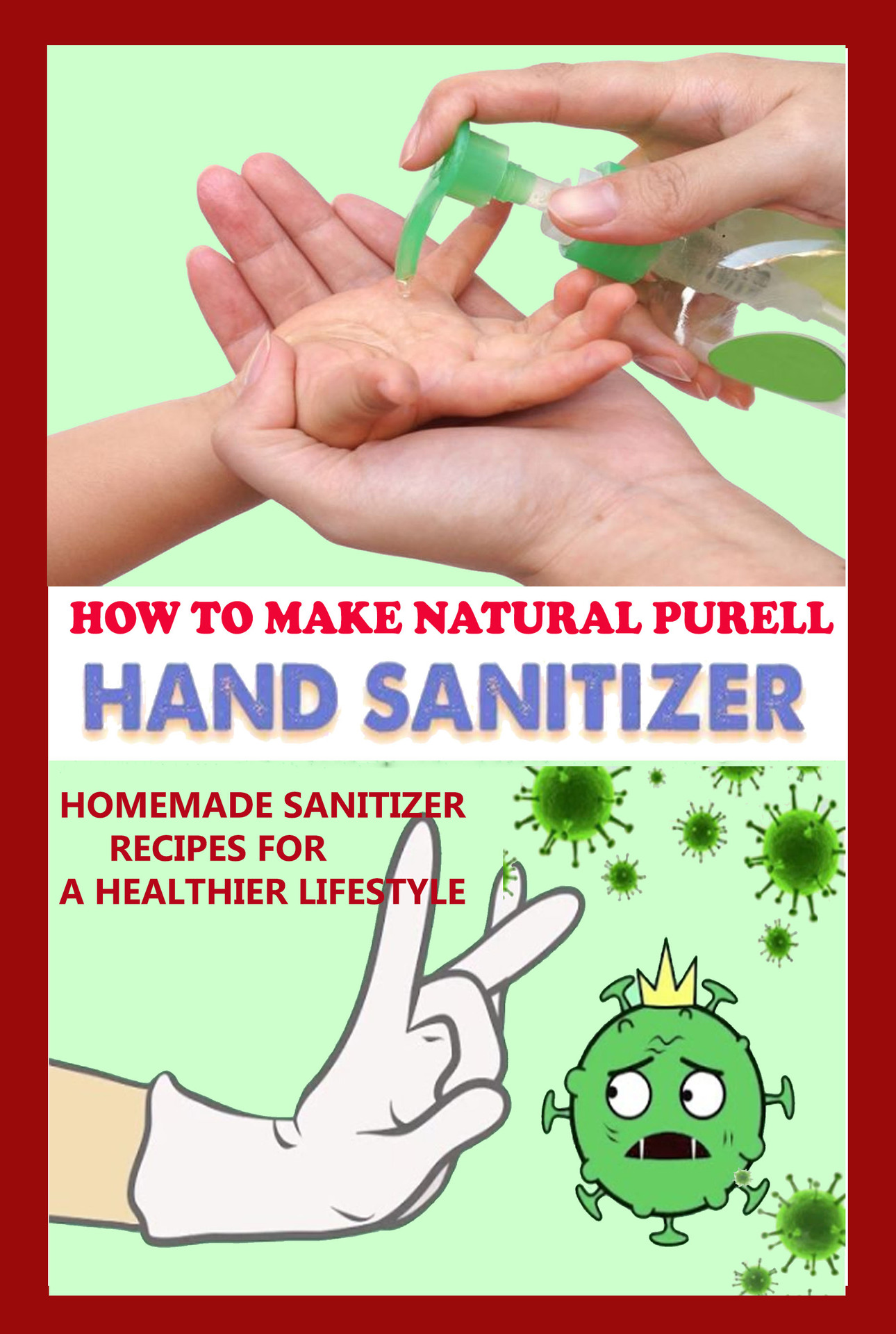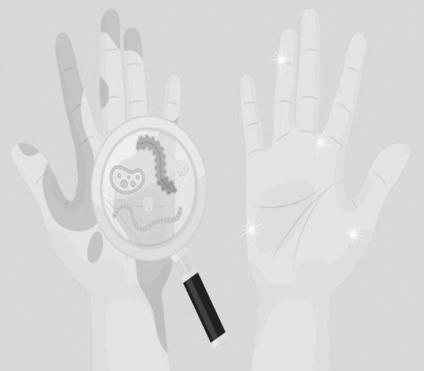HOW TO MAKE NATURAL PURELL HAND SANITIZER
Homemade Sanitizer Recipes for A Healthier Lifestyle
Dorothy Boeckel
Copyright 2020 Dorothy Boeckel
All rights reserved.
ISBN: 9798627461106
Contents
The portable hand sanitizers do have a role during peak respiratory virus season because they make it much easier to clean your hands.
DEDICATION
The author and publisher have provided this e-book to you for your personal use only. You may not make this e-book publicly available in any way. Copyright infringement is against the law. If you believe the copy of this e-book you are reading infringes on the author copyright, please notify the publisher at: https://us.macmillan.com/piracy.
ACKNOWLEDGMENTS
Properly scrubbing your hands is one of the best ways to stop the spread of germs and viruses, and to ensure you dont get sick yourself. But if you don't have access to soap and clean water, or if you're out and about and nowhere near a sink, you should carry hand sanitizer to protect your health.
As you're no doubt aware, bottles of hand sanitizer (Purell, Wet Ones, and the like) sell out quickly during public health crises. But don't worrymaking your own hand sanitizer is remarkably easy. You just have to be careful you don't mess it up. Make sure that the tools you use for mixing are properly sanitized; otherwise you could contaminate the whole thing. Also, recommends letting your concoction sit for a minimum of 72 hours after you're done. That way the sanitizer has time to kill any bacteria that might have been introduced during the mixing process.
We actually have some recipes for you, and links to find the ingredients. You can make with stuff you likely already have in your cabinets and under the sink, so it's effective in emergency situations. The others recipe is more complex, but easy to make if you have the opportunity to do some shopping and planning ahead of time.
Lets start!!!
6 THINGS YOU SHOULD KNOW ABOUT HAND SANITIZER
As concern about coronavirus grows, hand sanitizer is in high demand.
Hand sanitizer
Hand sanitizer is a liquid or gel generally used to decrease infectious agents on the hands. Formulations of the alcohol-based type are preferable to hand washing with soap and water in most situations in the healthcare setting. It is generally more effective at killing microorganisms and better tolerated than soap and water. Hand washing should still be carried out if contamination can be seen or following the use of the toilet. The general use of non-alcohol based versions has no recommendations. Outside the health care setting, hand washing is generally preferred. They are also less effective for microorganisms norovirus, and Clostridium difficile. They are available as liquids, gels, and foams.
Why is alcohol the main ingredient in most hand sanitizers?
Alcohol is effective at killing different types of microbes, including both viruses and bacteria, because it unfolds and inactivates their proteins.
This process, which is called denaturation, will cripple and often kill the microbe because its proteins will unfold and stick together. Heat can also denature some proteins for example, when you cook an egg, the solidified egg whites are denatured proteins.
Alcohol doesn't kill some microbes very well why not?
There are different types of bacteria and viruses, and some types are more easily killed by alcohol. For example, E. coli bacteria, which can cause foodborne illness and other infections, are very effectively killed by alcohol at concentrations over 60%. Differences in the outside surface of various bacteria make alcohol sanitization more effective against some of them than others.
Similarly, some viruses have an outer wrapping, which is called an envelope, while others are non-enveloped. Alcohol is effective at killing enveloped viruses, including the coronavirus, but is less effective at killing non-enveloped viruses.
Whether you are trying to kill bacteria or viruses, many research studies have found that an alcohol concentration of 60% or greater is needed to be effective.
If 60% alcohol is good, is 100% better?
Surprisingly, no. Protein denaturation actually works faster when a small amount of water is mixed with the alcohol. And pure alcohol would evaporate too quickly to effectively kill bacteria or viruses on your skin, especially during winter when the air is less humid.
Using 100% alcohol also would dry your skin out very quickly and cause it to become irritated. That might cause you to not sanitize your hands as frequently as needed. This is why most hand sanitizers contain emollients, which are mixtures that help soften and moisturize your skin.
Are homemade hand sanitizers a good idea?
In my view, no. You may see do-it-yourself formulas online, including some that use vodka. However, vodka is typically 80 proof, which means it's only 40% alcohol. That's not high enough to effectively kill microbes.
The rubbing alcohol you have in your bathroom for cuts and scrapes might seem like a good alternative, but if you are already near a sink, the best choice is to wash your hands with soap and hot water.
Does hand sanitizer expire?
Most commercial hand sanitizers are effective for a couple of years when they are stored properly and are marked with expiration dates.
One thing to keep in mind is that alcohol is volatile, which means that over time the alcohol will slowly evaporate and the sanitizer will lose its ability to effectively kill viruses and bacteria.
However, with hand sanitizer in such high demand now, you're unlikely to buy one that is expired.
DOES HAND SANITIZER WORK?
If you've visited a drug store lately, you probably noticed the empty shelves where hand sanitizers normally sit.
With the coronavirus (COVID-19) outbreak, it's not surprising that many people are taking extra steps to stay safe, including stocking up on sanitizing sprays, gels and soaps. But are hand sanitizers the best defense against bacteria and viruses like coronavirus and influenza?
Companies that market these products (which are sometimes labeled "antibacterial" or "antimicrobial") say yes. But some consumer advocates say no, arguing that they aren't effective and have the potential to engender bacterial strains that resist antibiotics.
As it turns out, the best answer is to take a common-sense approach.
When and How to Wash Your Hands?
Handwashing is one of the best ways to protect yourself and your family from virus and getting sick. Learn when and how you should wash your hands to stay healthy.
Wash Your Hands Often to Stay Healthy
You can help yourself and your loved ones stay healthy by washing your hands often, especially during these key times when you are likely to get and spread germs:
Before, during, and after preparing food
Before eating food
Before and after caring for someone at home who is sick with vomiting or diarrhea
Before and after treating a cut or wound
After using the toilet
After changing diapers or cleaning up a child who has used the toilet






